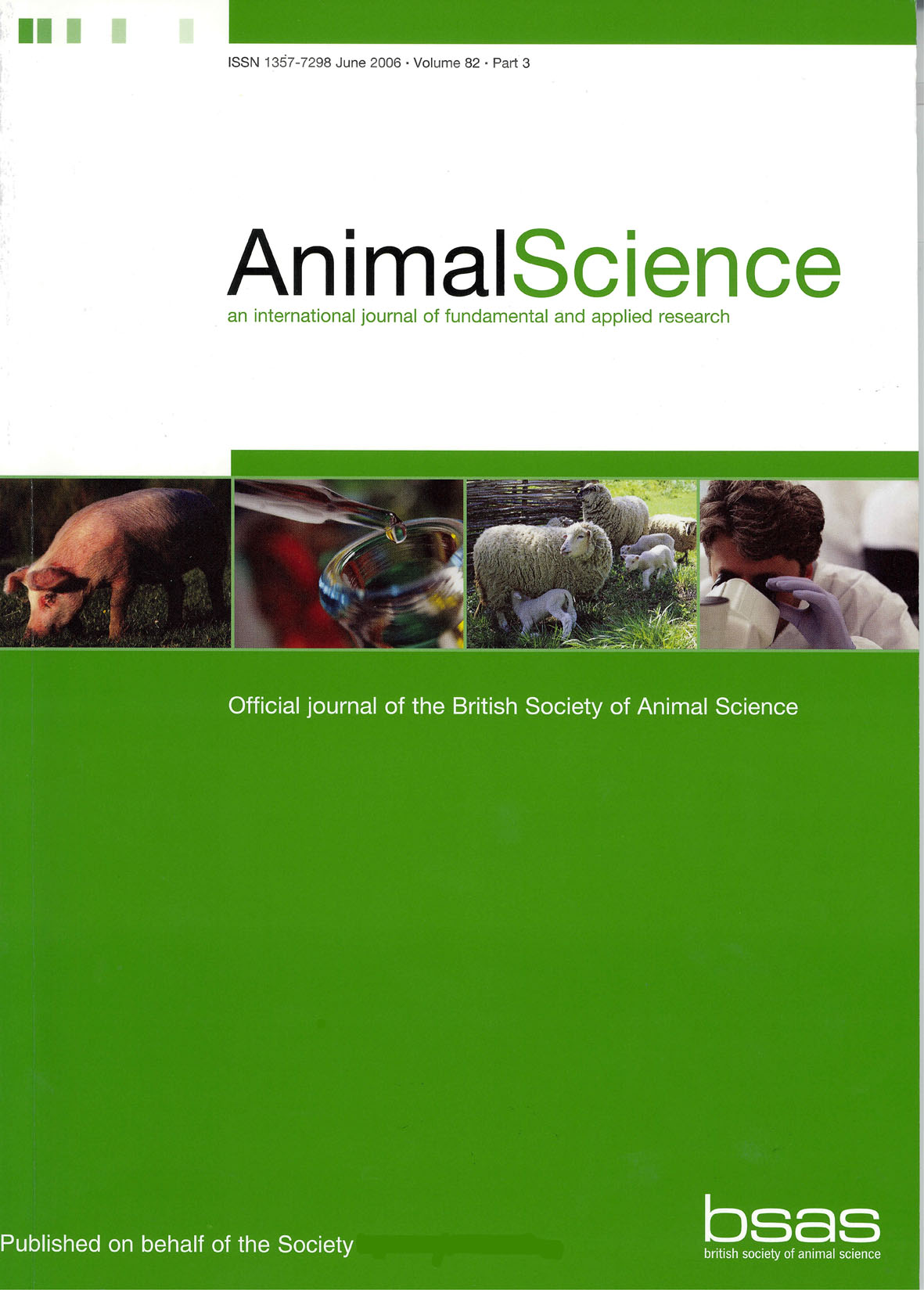Article contents
Effect of deliberate dietary mismanagement upon the incidence of diarrhoea in homebred calves
Published online by Cambridge University Press: 02 September 2010
Summary
The effects of dietary treatments designed to increase the incidence of diarrhoea were studied in two experiments with Ayrshire calves. In the first experiment, as a control a normal milk replacer was fed to calves at a rate of 170 g powder in 1·71 litre of water given twice daily. When the amount of powder was increased to 425 g in 1·71 litre of water, faeces consistency and intake of dry concentrates, decreased. When the amount of water was increased to 2·85 litre with 170 g of milk replacer each feed, the consistency of the faeces decreased. Inclusion of 2 % sodium citrate or 50% whey powder in the milk replacer tended to reduce live-weight gain in the period 0 to 32 days but did not increase the incidence of diarrhoea.
In the second experiment, the normal milk replacer and the replacer containing 50% whey powder were both given at 425 g powder in 1·71 litre water each feed without adverse effects upon performance. Clinical diarrhoea was virtually absent in both experiments and it was concluded that the homebred calf reared carefully in a good environment and given antibiotics prophylactically for 3 days is relatively resistant to substantial changes in the composition and methods of feeding of milk replacers.
- Type
- Research Article
- Information
- Copyright
- Copyright © British Society of Animal Science 1972
References
REFERENCES
- 6
- Cited by


